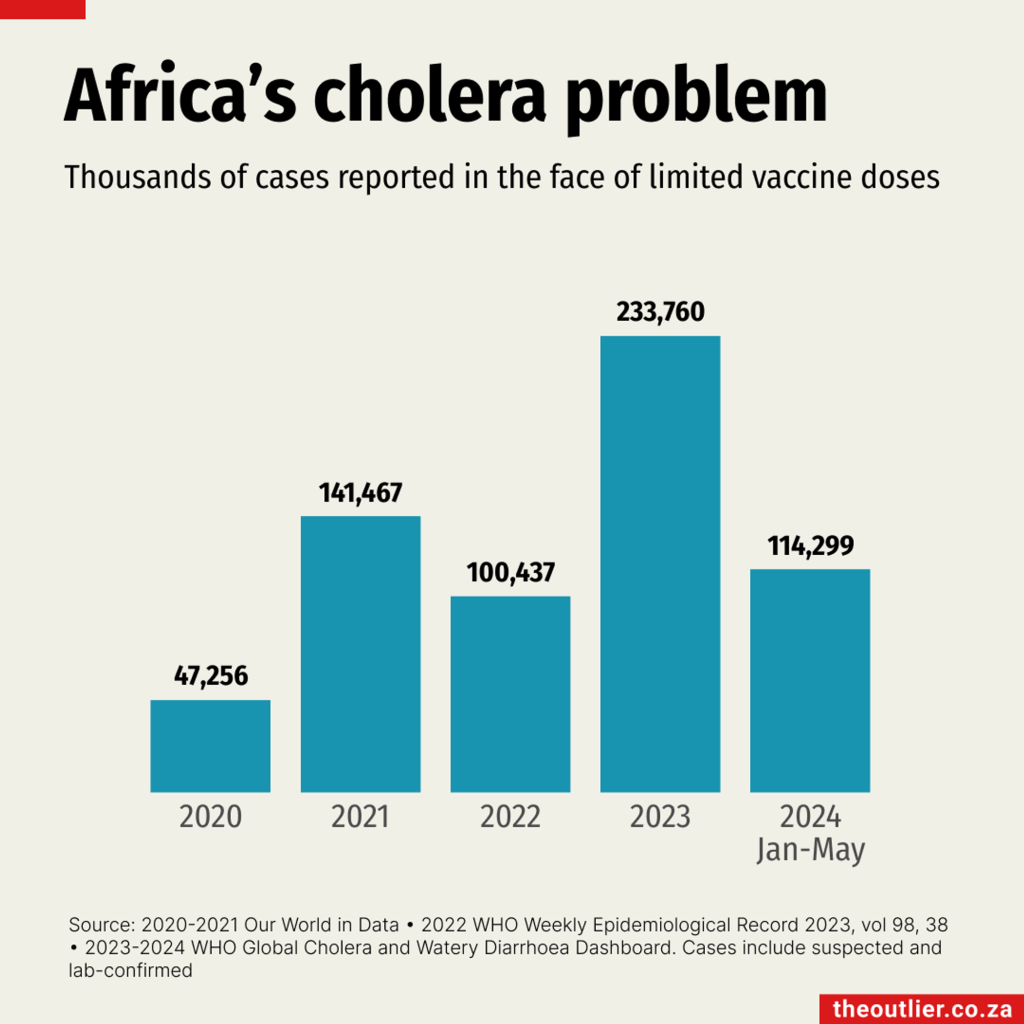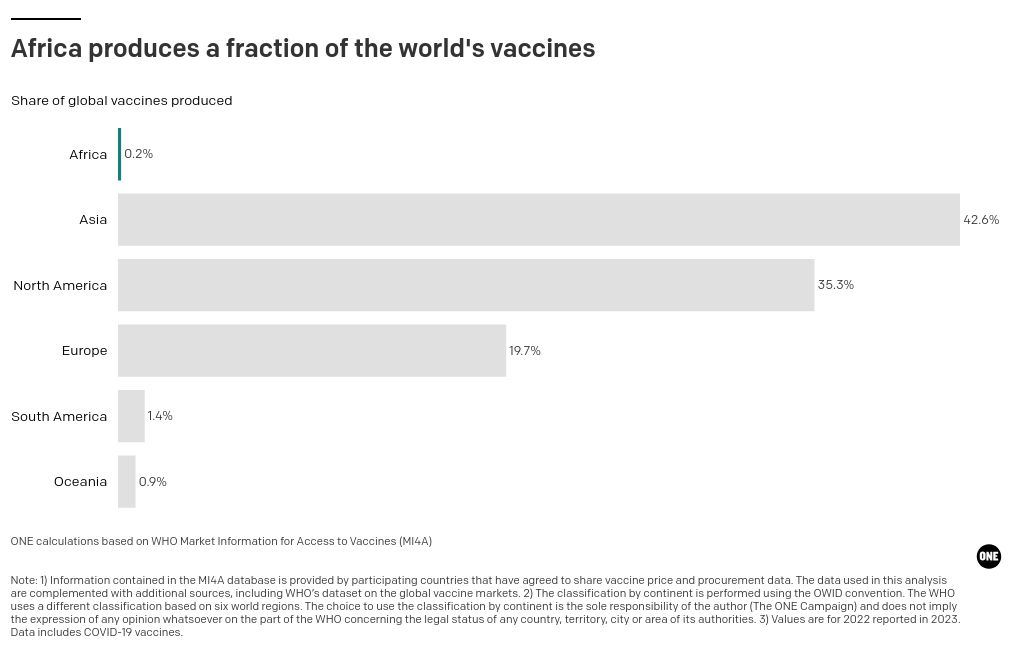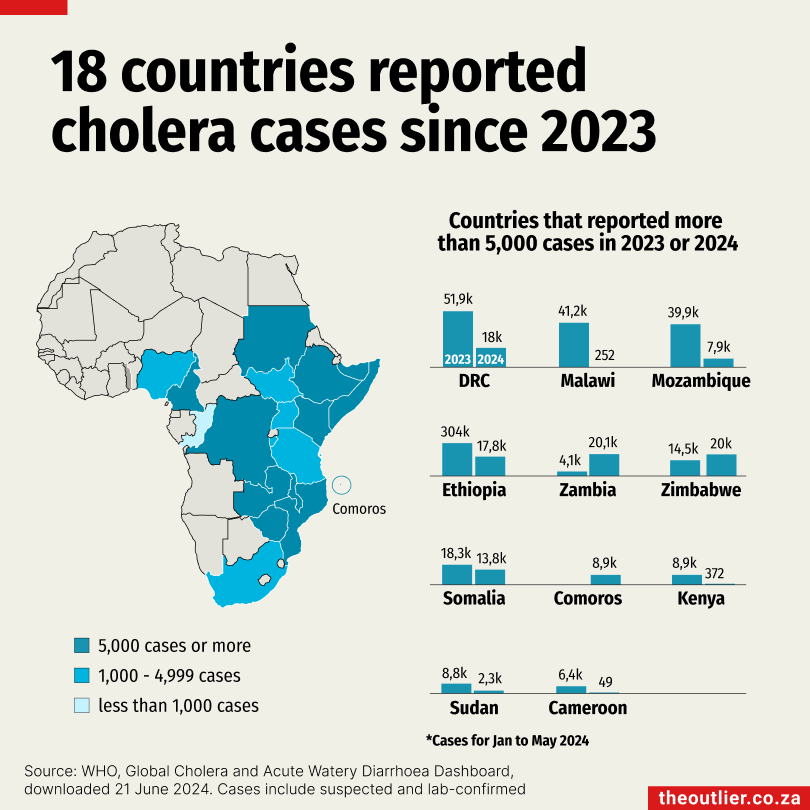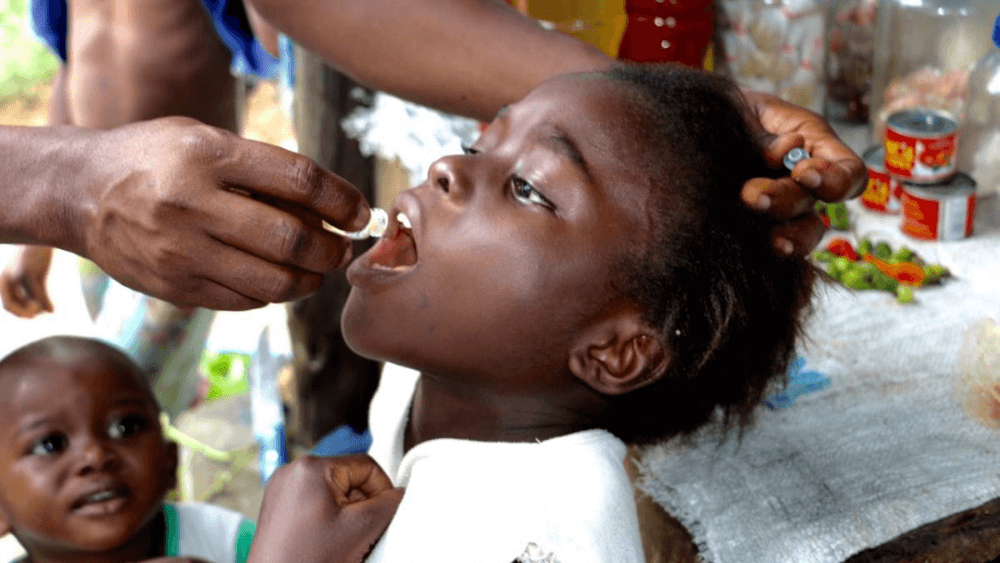It’s been a year since a cholera outbreak hit South Africa claiming the lives of 47 people.
The disease spreads rapidly in areas where sanitation is poor and people don’t have access to clean drinking water.
The outbreak drew attention to the poor state of the sanitation infrastructure in Hammanskraal, an area near Tshwane, which bore the brunt of the outbreak. It also showed what can happen if water and sanitation infrastructure are not maintained.
South Africa got off relatively lightly compared with some of its neighbouring countries.

In January 2023, the World Health Organization classified the global cholera outbreak as an acute grade 3 emergency. At the time, 27 countries around the world had reported cholera, some of which hadn’t had a case of the disease in decades.
Cases have been reported in 20 African countries since 2022 and more than 7,000 people have died of the disease, according to WHO data.
In many countries the fatality rate was well above the 1 death per 100 cases target. The situation was not helped by a shortage of cholera vaccines.
Vaccine shortage
There is a worldwide shortage of cholera vaccines.
In February 2024, Doctors Without Borders, a medical humanitarian organisation, reported that the global cholera vaccine stockpile had been exhausted.
Already in October 2022 a decision was made to temporarily reduce the dosage of vaccine given from two to one as a way to stretch out the supply.
‘Unlike the measles vaccine, the cholera vaccine is developed on a needs basis, such as during outbreaks and humanitarian crises,’ vaccinologist Edina Amponsah-Dacosta said in an article in The Conversation Africa.
‘There’s limited funding to purchase cholera vaccines, and as a result there’s limited production,’ she said.
There is also only one WHO-approved cholera vaccine producer in the world, EuBiologics in South Korea, although that is changing.

Less than 1% of world’s vaccine doses are made in Africa
‘During the Covid-19 pandemic African countries were forced to the back of the queue for life-saving Covid-19 vaccines. It taught us that we need to have our own local manufacturing capacity,’ said Amponsah-Dacosta.
In 2021, African leaders set a target to produce 60% of Africa’s vaccines in Africa by 2040, One.org says in a report that details what it will take to build Africa’s vaccine industry.
South African biopharmaceutical company Biovac is developing an oral cholera vaccine, which will start clinical trials in 2025.
Cholera in Southern Africa
Between January and mid-June 2024, over 100,000 cases (suspected and lab confirmed) had been reported in African countries. Zambia and Zimbabwe have each reported more than 20,000 cholera cases this year. More than 1,000 people have died of the disease – 637 in Zambia and 397 in Zimbabwe, according to the WHO.
Mozambique, the island of Comoros, the Democratic Republic of Congo, Ethiopia and Somalia have also been hard hit by cholera this year.

Climate change is worsening the problem of cholera outbreaks. Cyclones, floods and droughts create an ideal environment for cholera to spread because they reduce people’s access to clean water and sanitation infrastructure is often damaged.
Conflicts, such as those in the DRC, also trigger outbreaks, when people are forced to leave their homes and live in camps with limited access to clean water.
South Africa’s cholera outbreak was thought to have started after two women who travelled by bus from Malawi arrived in Gauteng in February 2023.
Malawi and Mozambique experienced devastating cholera outbreaks in the aftermath of Tropical Cyclone Freddie in late February and March 2023.
South Africa’s National Institute for Communicable Diseases said last month that the risk of cholera being imported into South Africa is high and that healthcare workers should be on the lookout for suspected cases.
